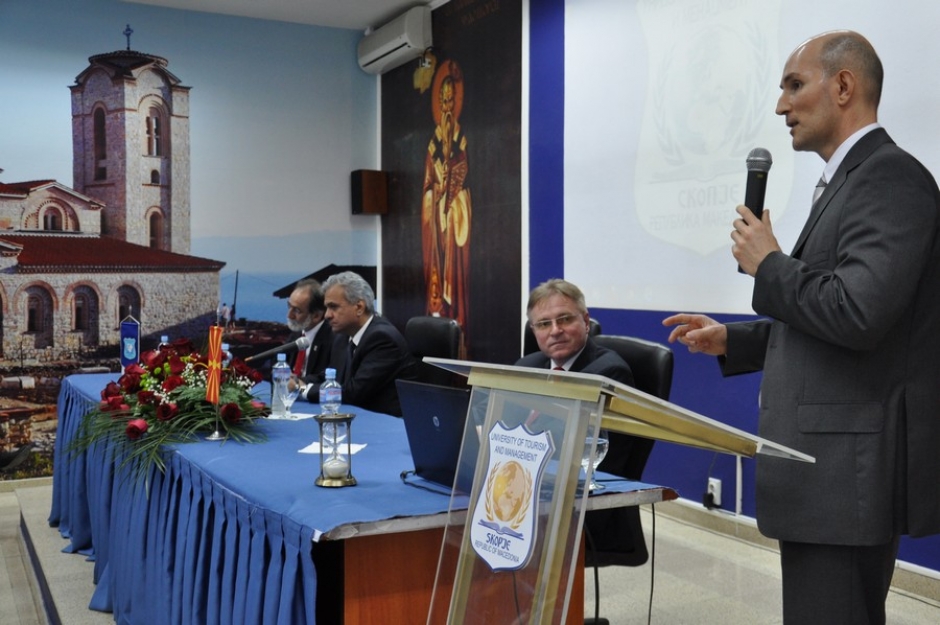Guest lecturer at UTMS, The Governor of the National Bank of the Republic of Macedonia, Mr. Dimitar Bogov
The Monetary policy in Macedonia considering the economic crises within the Eurozone and the high uncertainty of the world financial markets was the topic of the lecture held by the Governor of the National Bank of Macedonia, Mr. Dimitar Bogov on April 4th 2013 at the University of Tourism and Management Skopje. Within the program of the University of Tourism and Management Skopje, for inviting guest lecturers, in addition of widening the knowledge of our students, as well as, experience in this field, Mr. Bogov had lecture in the field of economics, banking, finance and globalization ...
The global financial crisis
Among the main questions for discussion were: how the financial crisis came, what are the reflections and what measures were taken by the governments and central banks around the world including in the Republic of Macedonia, what are the responsibilities of the monetary and fiscal decision-making bodies. The Governor of the Central Bank, Mr. Dimitar Bogov has presented the chronological changes within the process of the economic crisis as a one of the largest in history, which is in comparing with the Great Depression (1929-1933). As a worldwide phenomenon this is ongoing research theme today, but moreover it will be the subject of extensive research in the future. There are different opinions regarding the causes of the crisis. There is no doubt that the global economic crisis has affected all economies around the world. Even generated mainly in the financial sector the crisis spilled over into the real sector very quickly worldwide. Although there are different opinions regarding the main reason of this crisis around the academic and business circles, still the general conclusions shows that this financial crisis occurred as a result of the disruption of balance, especially as a result of the significant increase of the growth rate in the developing countries, which cause increasing of the liquidity which has created a phenomenon so called "cheap money".
This process of underestimating the risk, led to a huge ranking of free cash from banks, especially in the form of mortgage loans. The situation leads to the "bubble" of the financial market, which contributes later for dispersion, especially when citizens are faced with the inability to pay the loans. The liquidity imbalance destroy many banks in the world which indicated on the need of the further state intervention.
-
 Title
Title
Title
Title
-
 Title
Title
Title
Title
-
 Title
Title
Title
Title
-
 Title
Title
Title
Title
-
 Title
Title
Title
Title
-
 Title
Title
Title
Title
-
 Title
Title
Title
Title
-
 Title
Title
Title
Title
-
 Title
Title
Title
Title
-
 Title
Title
Title
Title
-
 Title
Title
Title
Title
-
 Title
Title
Title
Title
-
 Title
Title
Title
Title
-
 Title
Title
Title
Title
https://ef.utms.edu.mk/en/news/701-macedonia-has-a-stable-banking-sector#sigProIdd55e508f1e


